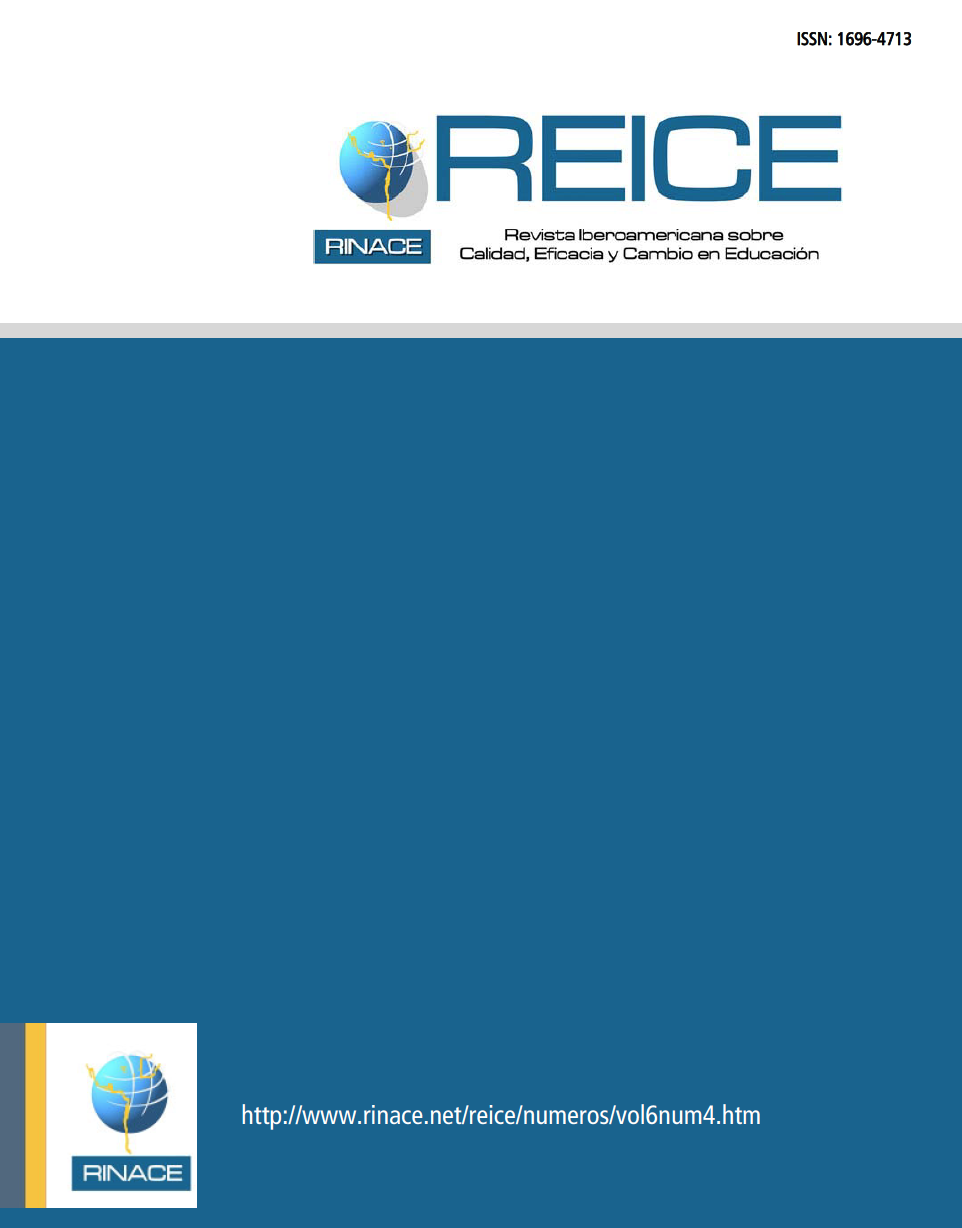Cuando la enseñanza marca la diferencia. Un estudio de casos sobre la enseñanza del Lenguaje en el último grado de Primaria, en el Uruguay
Copyright (c) 2016 REICE. Iberoamerican Journal on Quality Effectiveness and Educational Change

This work is licensed under a Creative Commons Attribution-NonCommercial-NoDerivatives 4.0 International License.
Abstract
Aprender a leer y a escribir es un proceso que no finaliza en los primeros años escolares. Este artículo se centra en la enseñanza de la Lengua Escrita, en la etapa en que los niños han superado el período inicial de su adquisición. Se basa en una investigación realizada en escuelas uruguayas, estudiando un panel de grupos provenientes de contextos socioculturales desfavorables, que cursan el último año de la educación primaria. Se describen las estrategias de enseñanza utilizadas en los grupos que tienen mayores avances en el aprendizaje y las utilizadas en el grupo que muestra menores incrementos del mismo. La variable aprendizaje, que se operacionaliza como la diferencia de rendimiento inicial y final, es medida a partir de una prueba estandarizada que se propone al comienzo y se repite ocho meses después. El trabajo de campo focaliza en la observación en las aulas, aunque además, implica, entrevistas en profundidad y grupos de discusión con el propósito de recabar información complementaria que permita comprender mejor cada caso y enriquecer el análisis con la triangulación de información. Las conclusiones se vinculan directamente con la teoría a través de un proceso de reflexión que busca profundizar la interpretación de los hallazgos empíricos.
Descriptores: enguaje - enseñanza - educación primaria - investigación - didáctica.
When teaching makes a difference. A case study on language teaching in the last grade in Uruguay
Learning to read and write is a process that does not end in the early school years. This article focuses on the teaching of the written language, at the stage where the children have passed the initial period of acquisition. It is based on research conducted in Uruguayan schools, studying a panel of groups from unfavorable sociocultural contexts, enrolled in the final year of primary education. teaching strategies used in the groups that have most progress in learning and those used in the group showing smaller increases thereof are described. The learning variable, which is operationalized as the difference between initial and final performance is measured from a standardized test that is proposed at the beginning and is repeated eight months later. The field work focuses on classroom observation, but also involves in-depth interviews and focus groups in order to gather additional information to better understand each case and enrich the analysis with triangulation of information. The findings are directly linked to the theory through a process of reflection that seeks to deepen the interpretation of the empirical findings.
Descriptors: Language - education - primary education - research - teaching.
